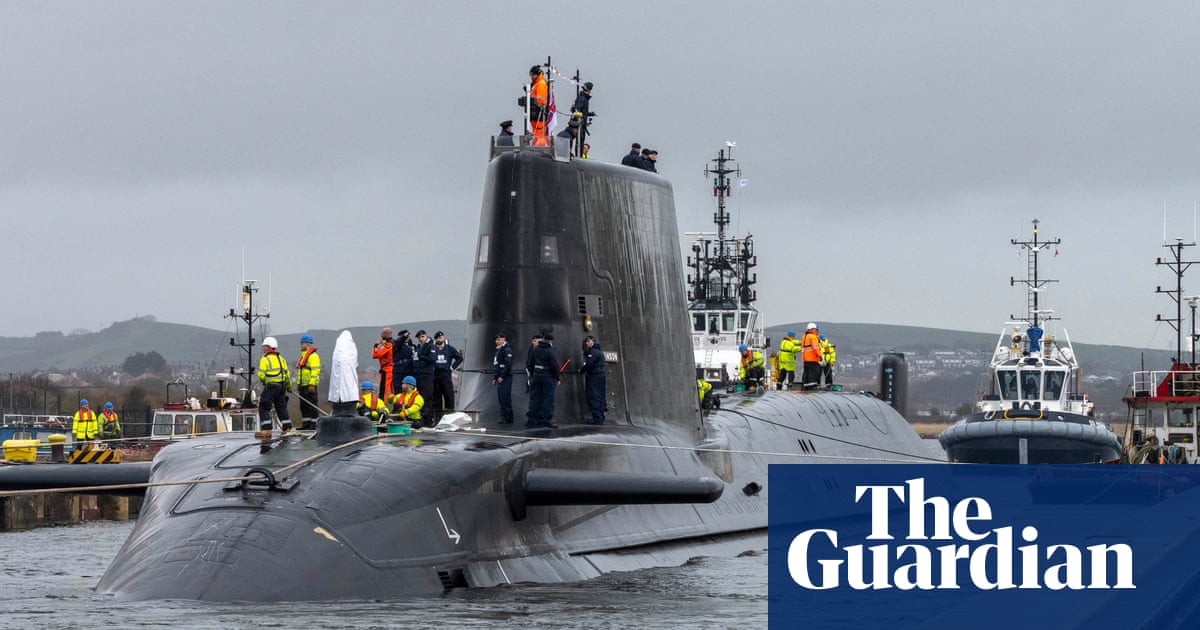
It is “the moment when they know what being prime minister is all about”, according to Whitehall historian Lord Hennessy.
One of Liz Truss’s early tasks will be to write instructions by hand to each of Britain’s four nuclear submarine commanders, directing them how to respond in the event of an all-out attack that will have killed her and destroyed the UK. They are known as the letters of last resort.
But first, Truss will receive a briefing from Britain’s military chiefs on how the Trident nuclear deterrent operates – including the likely military and human consequences of authorising a retaliatory strike.
The estimated 40 warheads available on a Vanguard submarine, which carries the Trident missiles, have the capacity to strike multiple cities and kill millions of people. “It is called a deterrent for a reason,” said one naval source.
Tony Blair went “quite quiet”, according to Lord Guthrie, the chief of defence staff who briefed him shortly after his 1997 election win. John Major said it was “one of the most difficult things I’ve ever had to do”.
Each warhead is thought to have an explosive yield of 100 kilotonnes, according to David Cullen of the Nuclear Information Service. That is more than six times the 15-kiloton bomb that was dropped on Hiroshima at the end of the second world war.
It is not necessary for Truss to write the letters immediately after the briefing; the new prime minister has time to reflect. The existing letters, written by Boris Johnson, can remain in force, most obviously for the submarine currently out at sea – at least one must be on patrol at all times for the nuclear deterrent to remain continuous.
Most previous prime ministers have not disclosed what they have written, although Jim Callaghan said: “If we had got to that point, then I would have done it.” Although he added, if he had in fact survived after having pressed the nuclear button, “I could have never, never forgiven myself”.
Theresa May was asked, in a Commons debate on renewing Trident in 2016, whether she was willing to “authorise a nuclear strike that can kill 100,000 innocent men, women and children”. Yes, she replied, adding “the whole point of a deterrent is that our enemies need to know that we would be prepared to use it”.
Once written, the letters are delivered, in a safe within a safe, to each of the four submarines. In fact, there are two letters for each submarine, the first of which carries instructions on the final steps that need to be taken before opening the safe with the second, from the prime minister.
A commander at sea has many ways to establish whether the UK and its systems of command and control still exists, monitoring a wide range of communications, not just the broadcast of Radio 4. There are also a well-established set of palliative and fall-back mechanisms in the unlikely event of any doubt.












